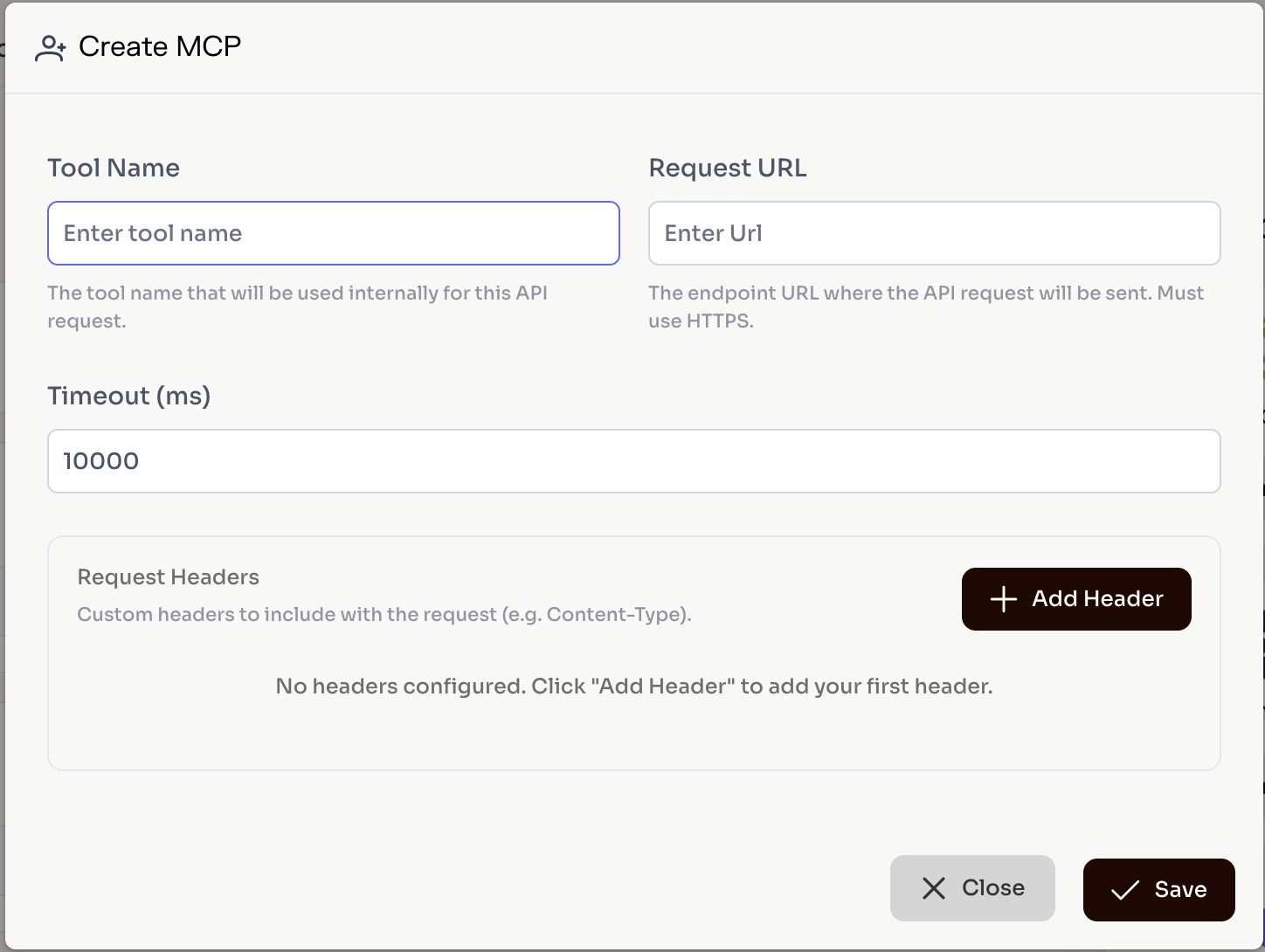⚙️ Connecting MCP Integrations
From the Integrations Library, you can easily connect to one or more MCP servers.- Go to the Integrations page in the dashboard.
- Select the MCP tab.
- From the Integrations Library, click Connect on your desired MCP provider (for example, Gmail, Zendesk, or Trello).
- A new tab will open prompting you to sign in and authorize the integration.
- Once authorization is complete, you’ll return to the dashboard, and your MCP server will appear under Active Integrations.
🧩 Using MCP Integrations
Once connected, MCP integrations can be attached to:- Assistants → to perform real-time actions like sending emails, fetching calendar events, or updating CRM data.
- Workflows → to automate multi-step tasks using contextual understanding and tool invocation.
💡 Tip: Each MCP integration can host multiple tools, so you can perform several actions within the same connected provider.
🧰 Adding a Custom MCP Integration
If your desired MCP provider is not available in the pre-listed options, you can easily add it as a Custom MCP Integration.- Click Add Custom MCP in the MCP integrations tab.
- Provide the following details:
- MCP Server URL
- Headers (optional) — key-value pairs for authentication or custom metadata
- Timeout (in seconds) — to control the connection duration
- Once configured, the system will automatically connect to the MCP server, fetch the schema, and add it to your Active Integrations.

🔒 Authorization and Security
- MCP integrations use OAuth-based authentication where available.
- Credentials are securely stored and never exposed in plaintext.
- You can disconnect or revoke access at any time from the integration dashboard.
